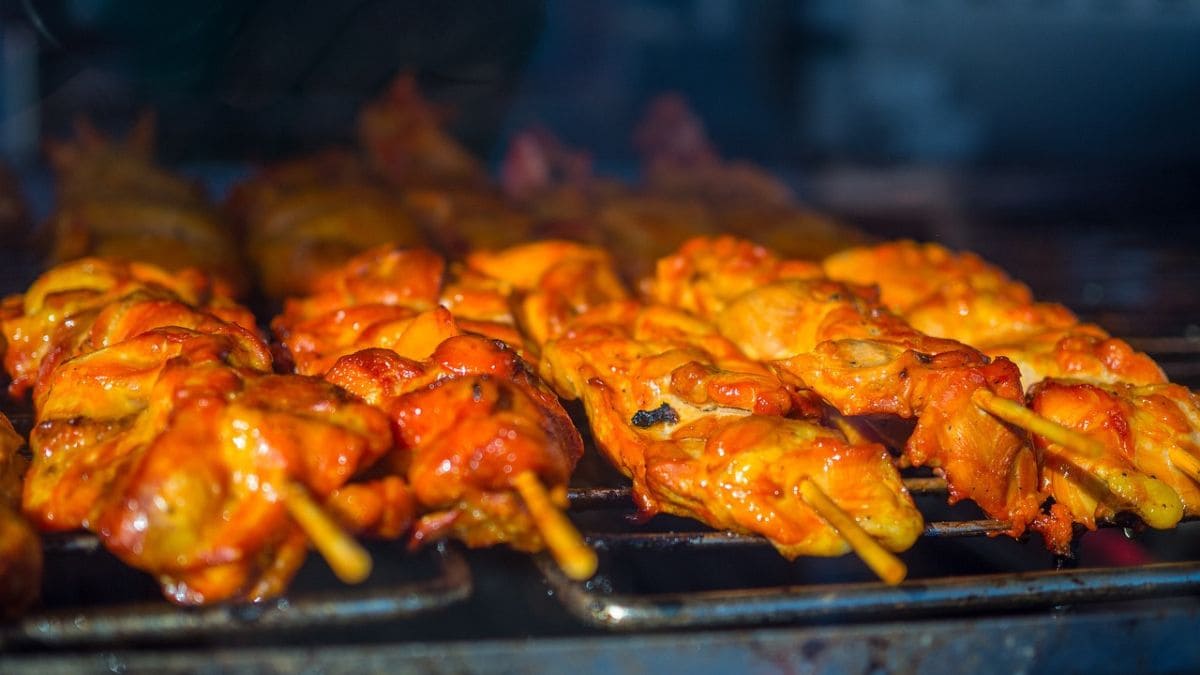Why Karnataka is banning artificial food colours in kebabs

A food test found unsafe levels of artificial colours, sunset yellow and carmoisine, being used in the preparation of kebabs across the state following which the Karnataka health officials issued a notification, warning of 'serious health risks to consumers.' Earlier, the government banned gobi manchurian and cotton candy after carcinogenic chemicals were found in them
In a move aimed at safeguarding public health and enhancing food safety, the Karnataka government has announced a ban on the use of artificial food colours on various food items including kebabs, fish, and vegetarian dishes across the state. Prompted by mounting health concerns and a growing awareness of the hazards posed by synthetic additives, the Karnataka health department issued a notification banning the use of artificial colours on Monday. What health concerns are associated with artificial food colours and how harmful are they? Let’s take a closer look The ban The Karnataka Health Department’s order comes following various reports in the media and complaints by the public that said that the quality of kebabs being sold across the state is “poor” due to the use of artificial colouring, which is causing adverse effects on public health. The health authorities swung into action and collected 39 samples of kebabs and sent them for testing in state laboratories. The results revealed that eight samples were contaminated with the presence of artificial colours and were termed unsafe for consumption. The colours, specifically, sunset yellow was detected in seven samples, while a combination of sunset yellow and carmoisine was found in another sample. Sunset yellow is an orange-yellow dye commonly used in candy, sauces, baked goods, and canned fruit. Whereas, carmoisine, a red food dye gives an appearance of red to maroon shade in food items. Thereafter, the Karnataka Health Department issued an order, stating that “such additives, as per the Food Safety and Standards Act, 2006, and the Food Safety and Standards (Food Products, Standards, and Food Additives) Regulations, 2011, pose serious health risks to consumers.” Considering the safety of our citizens, Karnataka Government has banned the usage of artificial colors in Veg, Chicken and Fish Kebabs. Recently, 39 samples of Kebabs were subjected to tests in the laboratory and 8 variants of kebabs were found to have harmful artificial colors... pic.twitter.com/0N1EmVNQCM Moreover, the department warned that violations of this order could result in severe penalties, including imprisonment ranging from seven years to life, and fines up to Rs 10 lakhs. The health risks Food dyes are chemical substances designed to enhance the appearance of food by imparting artificial colours. While the practice of adding colour to food dates back centuries, the first synthetic food colourings were developed in 1856 from coal tar. Today, these dyes are primarily derived from petroleum. Over the years, hundreds of artificial food dyes have been developed, but a majority of them have since been found to be toxic. “Excessive use of food colouring can be harmful, even within permitted limits. Unfortunately, some individuals, often lacking proper education, may not realise the risks of overusing colouring agents,” Dr Charu Dua, Chief Clinical Nutritionist, Amrita Hospital Faridabad told The Hindustan Times. Earlier, a study published in the Environmental Health Perspectives journal, stated that sunset yellow along with three other commonly used dyes is most likely to cause an allergic response, including skin swelling, breathing difficulties, particularly among asthmatics and hives. They are 52 per cent more likely to react to artificial food colouring. Further, exposure to these addictive food dyes can also lead to hyperactivity and other neurobehavioral issues in children, a 2021 study published by researchers at the Univerity of Berkeley and the University of Davis confirmed. Not a first move by K’taka govt In March, the state government banned the use of artificial colours in edible items such as Gobi Manchurian and cotton candy. The ban was imposed after carcinogenic additives Rhodamine-B and Tartrazine were used in their preparation for these food items. Rhodamine-B is a harmful chemical colouring agent extensively utilised in textile dyeing and the paper industry, it is used in creating dishes such as the ‘bright-coloured’ Gobi Manchurian or the ‘pretty pink’ cotton candy. Whereas, tartrazine, a bright yellow dye is frequently added to impart a vibrant orange or deep yellow hue to the food product. According to FSSAI, the final concentration of synthetic food colorants should not exceed 100 ppm in foods and beverages (FSSAI 2009). With input from agencies






0 Comments